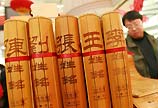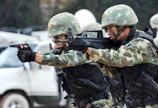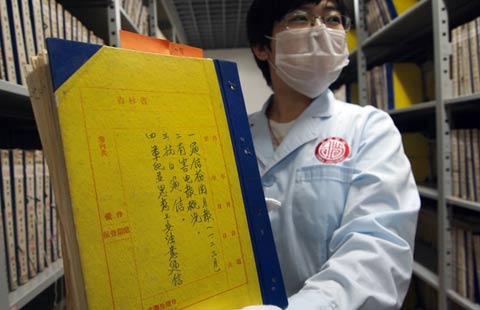Confessions of Japanese war criminals
(China Daily) Updated: 2014-07-07 07:08Editor's note: To offer a clearer picture of history, the State Archives Administration started on Thursday to release on its website a large number of files on 45 major Japanese war criminals who were tried and convicted by military tribunals in China after World War II. The special military tribunal of the Supreme People's Court had held public trials, sentencing the criminals to prison terms of eight to 20 years.
China Daily is publishing abstracts of each of the criminals' confessions:
Keiku Suzuki
According to his written confession in July 1954, Suzuki was born in Fukushima prefecture, Japan, in 1890 and went to northeastern China in 1934 to join the Japanese war of aggression against China, serving as assistant commander of the 28th Infantry Regiment.
In April 1945, he became lieutenant general and commander of the 117th Division. He was captured in Jilin on Aug 31, 1945.
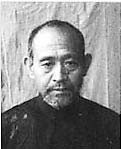
His major offenses include:
Around early March 1935: Assisted in "burning down two villages with a total of 300 households near Shangban city and killing many Chinese people".
November 1941: In an attack on the Eighth Route Army in Zaoqiang, Hebei, "killed 10 soldiers, burned down two villages with around 600 households, and also slaughtered 100 Chinese farmers".
October 1942: "Murdered 1,280 farmers in Daizhuang village, Panjia, Luanxian county, in such cruel ways as shooting, bayoneting, slashing and burying alive, and burned down all 800 households in the village".
July 1944: In Fengqiu, Henan, "killed about 40 soldiers of the anti-Japanese guerrilla forces, burned down a neighboring village of about 400 households, and killed about 100 Chinese farmers".
1945: "Ordered to set up 'comfort stations' in the regions occupied by the Japanese troops, and lured about 60 Chinese and Korean women to serve as 'comfort women'".
Shigeru Fujita
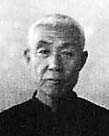
According to his written confession in August 1954, Fujita was born in 1889 in Hiroshima prefecture, Japan, and went to Shanxi province in August 1938 to join the Japanese war of aggression against China, serving as colonel and commander of the 28th Cavalry Regiment. He took the position of lieutenant general and commander of the 59th Division of the 43rd Army in March 1945. He was captured in Hamhung in the present-day Democratic People's Republic of Korea in August 1945.
His major offenses include:
November 1938: "Searched for and killed most of the inhabitants of Sanluli village", 40 kilometers to the northeast of Yuncheng, Shanxi.
Mid-January 1939: In Zhangliang village, Anyi county, Shanxi, "told all officers, 'Killing people is a quick way to get soldiers accustomed to the battlefield, as it can test their courage. For this purpose, it is better to use the captives'."
From March 1944 to April 1945: "Used 74 gas shells" while serving as commander of the 4th Cavalry Brigade.
March 27, 1945: "Massacred all inhabitants of about 50 households in a village along the Dengxian county-Laohekou road, which is 200 meters to the north of Zhulinqiao, killing seniors, women, children and other inhabitants"; "used gas shells during an attack in Maqushan" on the same day.
June 1945: "Maltreated and killed captives in Jinan", and "over 600 captives of the Jinan Internment Camp who had been forced to build battle positions were bayoneted to death in soldier training after June 15".
- Deals mark close China, Germany ties
- Capital hastens effort to cut PM2.5 pollution
- Double agent 'contradicts' trust with US
- Diversion project's water quality guaranteed
- Li, German leader make surprise visit to students
- China asks ships to stay away from Typhoon Neoguri
- China to prepare for the coming aging society
- Consumers, merchants at odds over refund
- China to encourage voluntary drug rehab
- Elephant 'kungfu' show angers rights group
